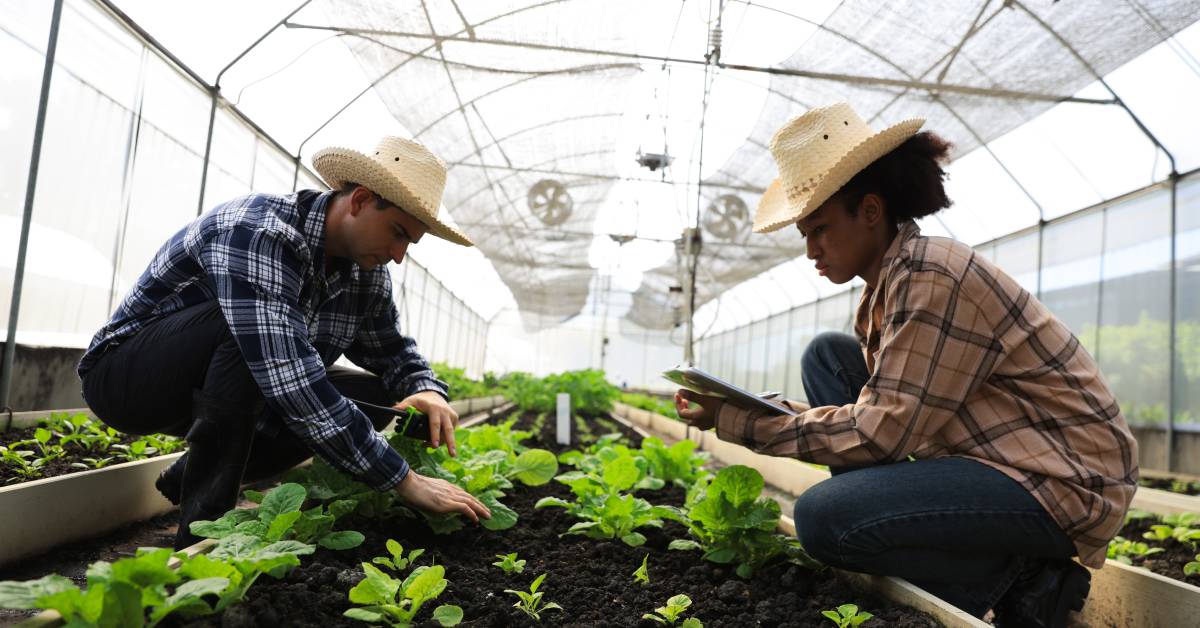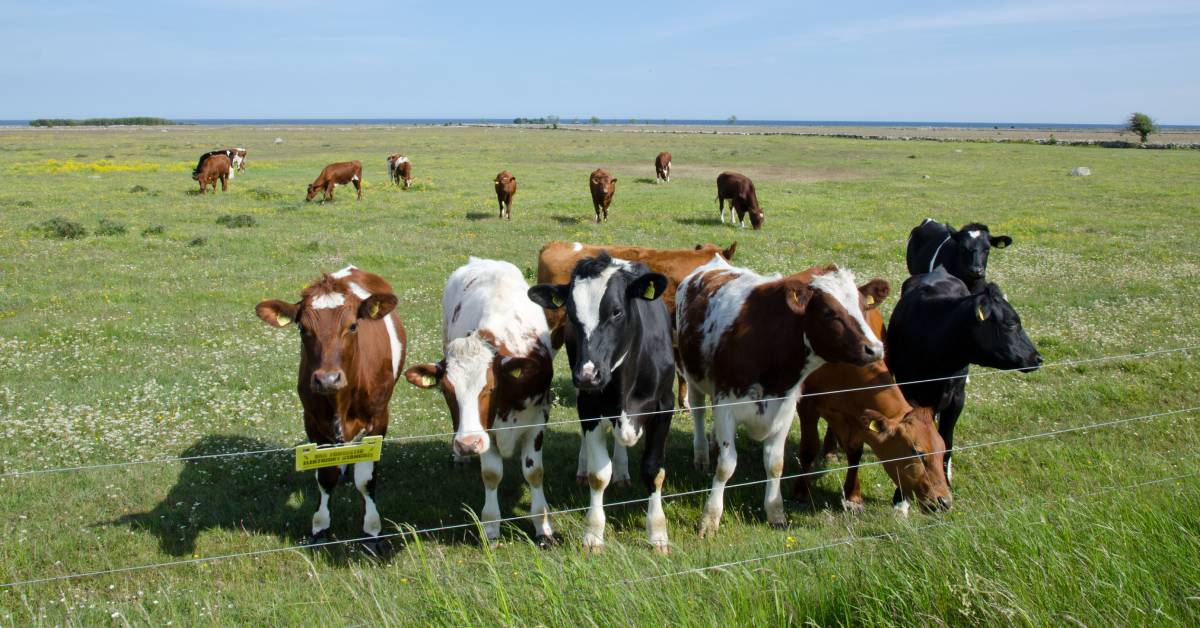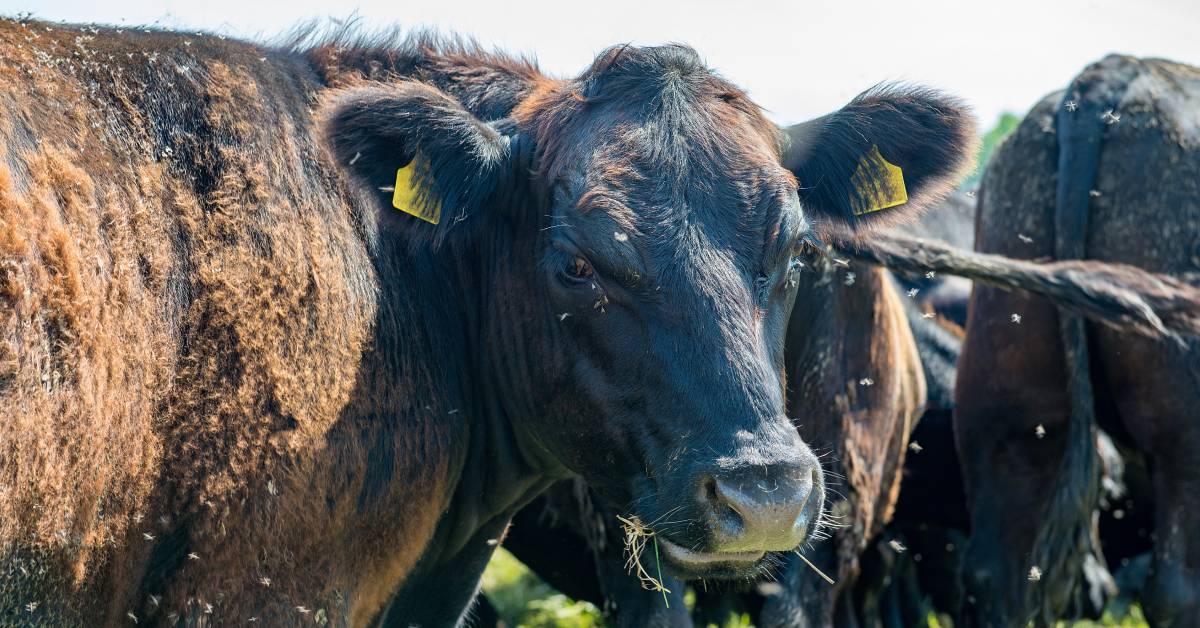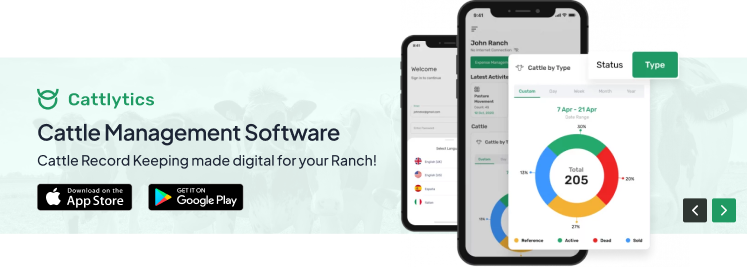One of the essential functions for which ERP is known is its ability to centralize all the information from multiple business functions into a single unified system. Data from different parts of the business is gathered in a single system that is further used for various purposes.
Under current circumstances, the agriculture industry is increasingly becoming reliant on data to manage its operations. Twenty to thirty years ago, Ag businesses were hardly dealing with a few bits and bytes of data. However, since the introduction of IoT devices, farmers are now handling gigabytes of data daily.
This is where the role of ERP data management comes into play. It is really important for agriculture businesses using ERPs to follow best practices and have a proper plan for managing their ERP data.
In this blog, we will look at the importance of data management in agriculture and how businesses can use best practices of ERP data management to streamline their operations and make better decisions.
What is the Role of Data in Agriculture
Due to insufficient knowledge about soil conditions, weather patterns, fertilizer application, etc., farmers have faced several challenges in the past that have led them to over- or under-produce crops.
According to the USDA, 90% of crop losses are related to extreme weather. This demands the use of modern farming practices and advanced farming tools that can help farmers mitigate the impact of weather and avoid crop losses.
Farmers can use modern practices to collect relevant and accurate data on soil conditions and weather patterns and make informed decisions about irrigation scheduling, seeding, fertilization, and other farming processes.
Applications of Data in Agriculture
The scope of data applications in agriculture is huge, and businesses have just started exploring it. From crop monitoring to livestock management, data plays a crucial role in optimizing processes and increasing efficiency. It can also help food businesses trace their products from farm to fork and ensure all food safety standards are followed at every supply chain step.
Here are some of the applications of data in agriculture:
Crop Monitoring and Yield Prediction:
By using satellites and drones, farmers can gather data on their crops, such as growth stages, health conditions, and yield predictions. This helps them make timely decisions on when to water, fertilize, or harvest their crops. Regular crop monitoring can help farmers identify any issues early on and take necessary actions to prevent crop losses.
Weather Forecasting and Climate Adaptation:
If farmers can accurately predict the weather, it can help them effectively arrange their planting schedules, irrigation timing, and harvesting operations. Weather forecasting can be done based on historical weather data and satellite data.
Moreover, data can help farmers understand how their crops respond to specific weather patterns. For instance, by analyzing data, farmers can know whether their crops can survive rainfall or not. This can help them develop other crop varieties more resilient to climate change.
Livestock Management:
So far, we have only discussed how data can benefit crop production. However, data can also be useful for livestock management. By monitoring and tracking animal health, farmers can identify any signs of illness or disease early on and take necessary actions to prevent the spread of infection among other animals.
Farmers managing feedlots can integrate data from wearable sensors, RFID tags, and automated monitoring systems into livestock management software programs. This lets them track feed intake, milk production, reproductive status, and movement patterns in real-time.
Supply Chain Optimization
Agriculture businesses can get data insights for the entire supply chain from farm to fork. By collecting and analyzing production volumes, quality attributes, and transportation logistics data, stakeholders can identify inefficiencies and reduce waste throughout the supply chain.
Advanced technologies, such as blockchain and IoT-enabled traceability systems, can enable transparent and traceable transactions, ensuring product integrity and food safety from farm to consumer.
Power of ERP in Agriculture Data Management
Until now, we have discussed in detail the importance of data collection and how it can be used in agriculture. Now, let’s talk about integrating all this data into one central system.
An Enterprise Resource Planning (ERP) is a centralized software solution that manages different business operations. For farmers, ERP can help bring data from multiple sources into one place and help them access and analyze it to make decisions.
ERP data management integrates all farm data, including crop and soil data, weather forecasts, livestock health, market prices, and financial information.
Following are some of the benefits of using ERP for data management in agriculture:
Improved Efficiency and Productivity:
By automating data collection processes, farmers can stop relying on manual data entries and make record-keeping less prone to errors. ERP data management can help improve efficiency, as farmers can quickly access data anytime and anywhere.
Data Accuracy:
When data is coming from different devices like sensors and drones, it might lead to inaccuracies if it is not appropriately handled under a single system. ERP data management can gather all this data in a single system, and inconsistencies and duplicate entries can be avoided.
Data Visualization:
ERP data management allows data visualization. Businesses can create customized dashboards based on their needs and requirements. Data visualization allows farmers to quickly glance at the data in an easy-to-understand format.
Improved Data Security:
If data is distributed in different systems, it might be difficult to keep them secure. However, in ERP, data is stored in a single system. There are fewer chances of data breaches, and sensitive information can be controlled by implementing security measures.
Enhanced Traceability:
ERP improves data management by providing accurate data. It can help in traceability of products from farm to consumer, ensuring food safety and quality standards are met.
Promotes Sustainability
When data is appropriately managed, farmers know everything about their crops and their growth. This prevents them from over- or under-using resources, leading to better resource allocation and less wastage.
6 Best Practices for ERP Data Management
ERP implementation can itself be a huge challenge for businesses, especially in the agriculture industry, where people are not well-accustomed to technology. However, farmers should follow certain best practices to get the best out of ERP data management. These include:
Effective Data Migration:
Implementing ERP is a difficult job, and so is migrating data from your existing business systems into the newly adopted ERP. To do this effectively, agriculture businesses must invest plenty of time in data migration planning. Before migrating the whole data, testing could be done to ensure that the actual migration process happens smoothly.
Data Quality Assurance:
If a business fails to input data correctly into ERP software, it will lead to poor data quality, resulting in a loss of confidence in the system and the wrong business insights. Therefore, businesses should implement data validation rules and regularly monitor data for anomalies and deviations from standards.
Agricultural businesses should also train their teams and enforce proper procedures for entering data accurately into an ERP.
Data Integration:
If an agriculture business is looking to switch to ERP software, it is highly possible that it is already using some type of farm management software to manage its operations. In that case, integrating data from the software into the new ERP system is necessary for a smooth transition. To do this effectively, businesses can use standardized data formats and APIs, open source ETL tools. Plus, businesses can use open source ETL tools to seamlessly integrate data from the software into the new ERP system.
Data Security:
ERP data management must implement strong security measures to protect data from cyber threats. These measures may include firewalls, encryption, regular data backups, and access control mechanisms.
These measures are really important because a data breach can result in a huge financial setback for a business. Hence, incorporating the right security measures can protect the company’s data, keep the operations running smoothly, and maintain customer’s trust. To enhance security, especially when accessing ERP systems via the web, implementing a VPN for Chrome ensures that your data remains encrypted and secure from potential interception, further safeguarding your critical business information. Additionally, using the best residential proxy servers can provide an extra layer of protection by masking your IP address and allowing secure, anonymous browsing, further reducing the risk of cyber threats.
Regular Data Analysis:
ERP data management offers business intelligence (BI) and reporting tools that can help agricultural businesses identify patterns and trends in the data. Farmers can analyze this data to make informed decisions and improve their processes, leading to better outcomes.
Employee Training:
Last but not least, the best practices of ERP data management require the business to train its employees well on the new ERP system and processes. This will enable them to use the system efficiently and effectively, leading to better business results.
How to Choose the Right ERP for Your Business
Choosing the right ERP software can be challenging, given the current condition where many software providers are chipping in with their solutions. If you are looking for an ERP solution for the agriculture business, it is advisable that you conduct thorough market research before choosing the right solution.
Apart from looking for the benefits of an ERP solution, you should first list the needs and requirements of your farming operation and which features you will need the most in an ERP. Then, consider conducting an ERP cost-benefit analysis to ensure the ERP is a good investment for your business.
To select the best ERP for your business, consider the following factors:
- Functionality: While listing down the requirements of your business, you should look at which ERP offers functions that fit your needs. You can have internal discussions with your team to clearly understand your business needs and then look for ERP demos to find the best ERP.
- Scalability and Flexibility: You should look for an ERP that can let you scale your operations as your business expands. It should also be flexible enough to adapt to changing market conditions and new technologies.
- Customization: There is no ERP software that can fit the needs of every business. Hence, it should offer customization features to customize the system to fit your business processes and workflows.
- Integration Capabilities: As discussed above, data integration is a key component of ERP data management. To select the best ERP software for your business, you must look for the ones that offer seamless integration with your existing business systems.
- Implementation Costs: Lastly, ERP implementation costs must be considered before planning to shift to an ERP system. You should look for ERP providers that offer cost-effective solutions and have transparent pricing models.
Folio3 AgTech- Your Reliable Partner in ERP Implementation
Selecting the right ERP system might be difficult for agriculture businesses today. It requires extensive consultation, testing, and market research. The business needs time and tech expertise to decide on the right ERP for the agriculture business.
Fortunately, with Folio3 AgTech as your technology partner, implementing an ERP solution can become really easy. With a team of experienced professionals and expertise in agriculture technology, Folio3 AgTech can help you identify the right ERP for your business and ensure a smooth implementation process.
Over the past 20 years, Folio3 AgTech has helped multiple ag businesses successfully implement ERP solutions and optimize their operations. One such example is of North America’s largest lamb processor and marketer.
The company approached Folio3 AgTech with the challenge of managing data manually in silos. Manual processes and paper-based recording hindered organizational efficiency and the company’s growth.
They were looking for a solution to automate and provide an up-to-date and integrated view of the business processes, from breeding to distribution management.
After a few discovery calls, Folio3 AgTech identified the right solution to resolve the business’s challenges. A fully customer-centric solution, Folio3 AgTech ERP, was offered. This solution eliminated the manual paper-based system and integrated business functions in one place to provide a consolidated view of performance and progress.
Conclusion
We all know how data is transforming industries today and helping them grow. Similarly, effective ERP data management can help an agricultural business stand out from its competitors by using the data to make strategic decisions. ERP can help businesses consolidate all their data on a single platform and access it anywhere at any time.
However, choosing the right ERP software requires thorough research and consultation. Folio3 AgTech’s expertise in the agriculture industry and experience in implementing successful ERP solutions can help businesses navigate this process and ensure a smooth transition to an efficient and integrated system.
FAQs
What is ERP Data Management?
ERP data management is the process of collecting, organizing, and analyzing data from various business functions using ERP software. It helps businesses manage their operations effectively and make informed decisions based on data insights.
What are the Three Types of ERP Data?
The three types of ERP data are:
- Transactional Data: This refers to day-to-day business activities and processes,
- Master Data: This contains important information about products, customers, and suppliers,
- Reference Data: This includes codes and identifiers used for identification and classification purposes.
What Does ERP Stand for in Agriculture?
In agriculture, ERP stands for Enterprise Resource Planning. The software system helps businesses manage and integrate their core operations, such as production, inventory, sales, and financials.







